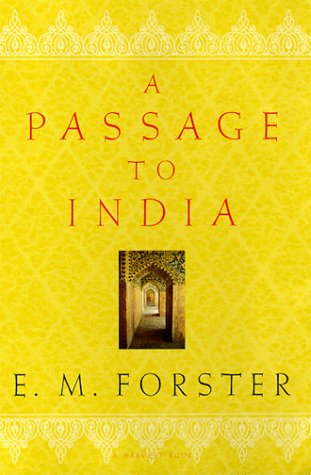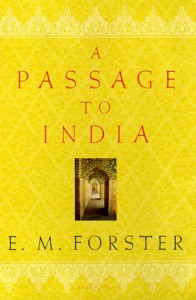A Passage to India, by E.M. Forster [trade paperback]; also made into an award-winning film.
Perhaps the most important task of all would be to undertake studies in contemporary alternatives to Orientalism, to ask how one can study other cultures and peoples from a libertarian, or a nonrepressive and nonmanipulative, perspective.
When I asked Dr. Plauché what I should review for my first contribution to Prometheus Unbound, he suggested that I elaborate on my recent Libertarian Papers article: “The Oft-Ignored Mr. Turton: The Role of District Collector in A Passage to India.” Would I, he asked, be willing to present a trimmed-down version of my argument about the role of district collectors in colonial India, a role both clarified and complicated by E.M. Forster’s portrayal of Mr. Turton, the want-to-please-all character and the district collector in Forster’s most famous novel, A Passage to India. I agreed. And happily.
 For those who haven’t read the novel, here, briefly, is a spoiler-free rundown of the plot. A young and not particularly attractive British lady, Adela Quested, travels to India with Mrs. Moore, whose son, Ronny, intends to marry Adela. Not long into the trip, Mrs. Moore meets Dr. Aziz, a Muslim physician, in a mosque, and instantly the two hit it off. Mr. Turton hosts a bridge party — a party meant to bridge relations between East and West — for Adela and Mrs. Moore. At the party, Adela meets Mr. Fielding, the local schoolmaster and a stock character of the Good British Liberal. Fielding invites Adela and Mrs. Moore to tea with him and Professor Godbole, a Brahman Hindu. Dr. Aziz joins the tea party and there offers to show Adela and Mrs. Moore the famous Marabar Caves.
For those who haven’t read the novel, here, briefly, is a spoiler-free rundown of the plot. A young and not particularly attractive British lady, Adela Quested, travels to India with Mrs. Moore, whose son, Ronny, intends to marry Adela. Not long into the trip, Mrs. Moore meets Dr. Aziz, a Muslim physician, in a mosque, and instantly the two hit it off. Mr. Turton hosts a bridge party — a party meant to bridge relations between East and West — for Adela and Mrs. Moore. At the party, Adela meets Mr. Fielding, the local schoolmaster and a stock character of the Good British Liberal. Fielding invites Adela and Mrs. Moore to tea with him and Professor Godbole, a Brahman Hindu. Dr. Aziz joins the tea party and there offers to show Adela and Mrs. Moore the famous Marabar Caves.
When Aziz and the women later set out to the cavea — Fielding and Godbole are supposed to join, but they just miss the train — something goes terribly wrong. Adela offends Aziz, who ducks into a cave only to discover that Adela has gone missing. Aziz eventually sees Adela speaking to Fielding and another Englishwoman, both of whom have driven up together, but by the time he reaches Fielding the two women have left. Aziz heads back to Chandrapore (the fictional city where the novel is set) with Fielding, but when he arrives he is arrested for sexually assaulting Adela. A trial ensues, and the novel becomes increasingly saturated with Brahman Hindu themes. (Forster is not the only Western writer to be intrigued by Brahman Hinduism. Ralph Waldo Emerson and William Blake, among many others, shared this fascination.) The arrest and trial call attention to the double-standards and arbitrariness of the British legal system in India.
Rule of law was the ideological currency of the British Raj, and Forster attempts to undercut this ideology using Brahman Hindu scenes and signifiers. Rule of law seeks to eliminate double-standards and arbitrariness, but it does the opposite in Chandrapore. Some jurisprudents think of rule of law as a fiction. John Hasnas calls rule of law a myth. Whatever its designation, rule of law is not an absolute reality outside discourse. Like everything, its meaning is constructed through language and cultural understanding. Rule of law is a phrase that validates increased governmental control over phenomena that government and its agents describe as needing control. When politicians and other officials lobby for consolidation or centralization of power, they often do so by invoking rule of law. Rule of law means nothing if not compulsion and coercion. It is merely an attractive packaging of those terms.











